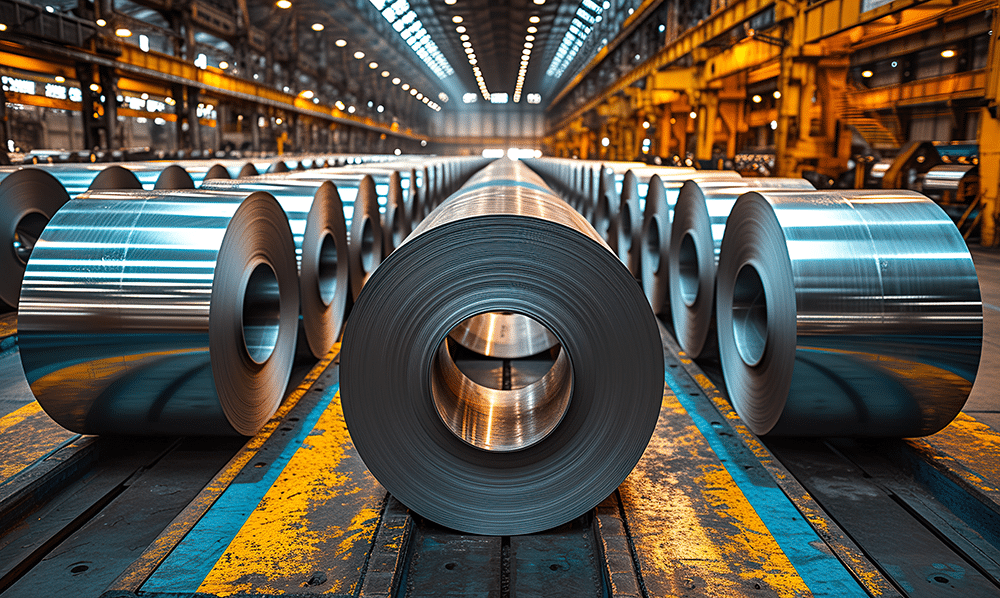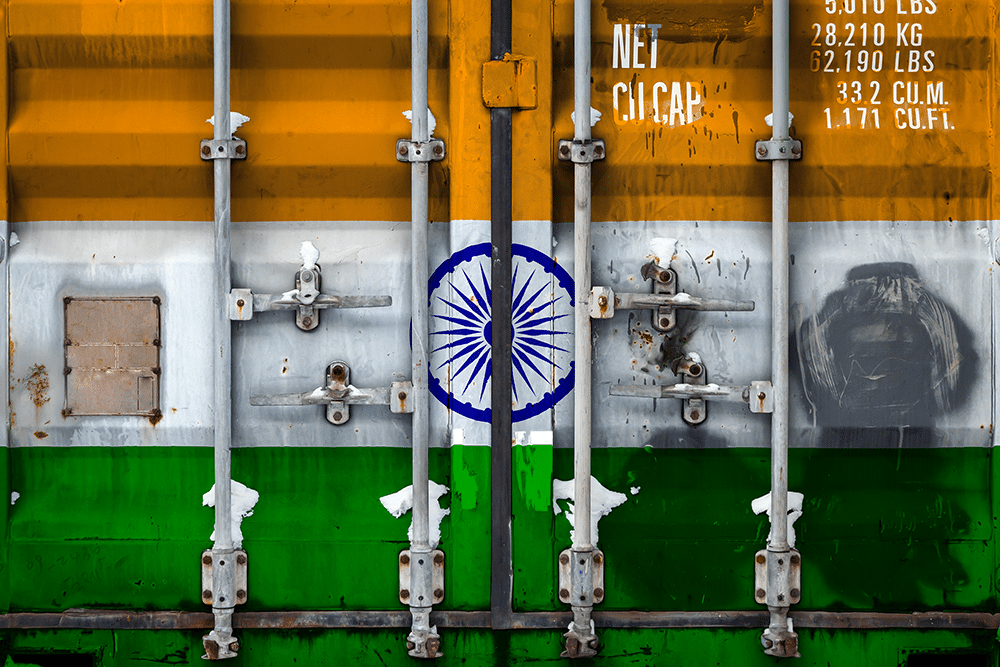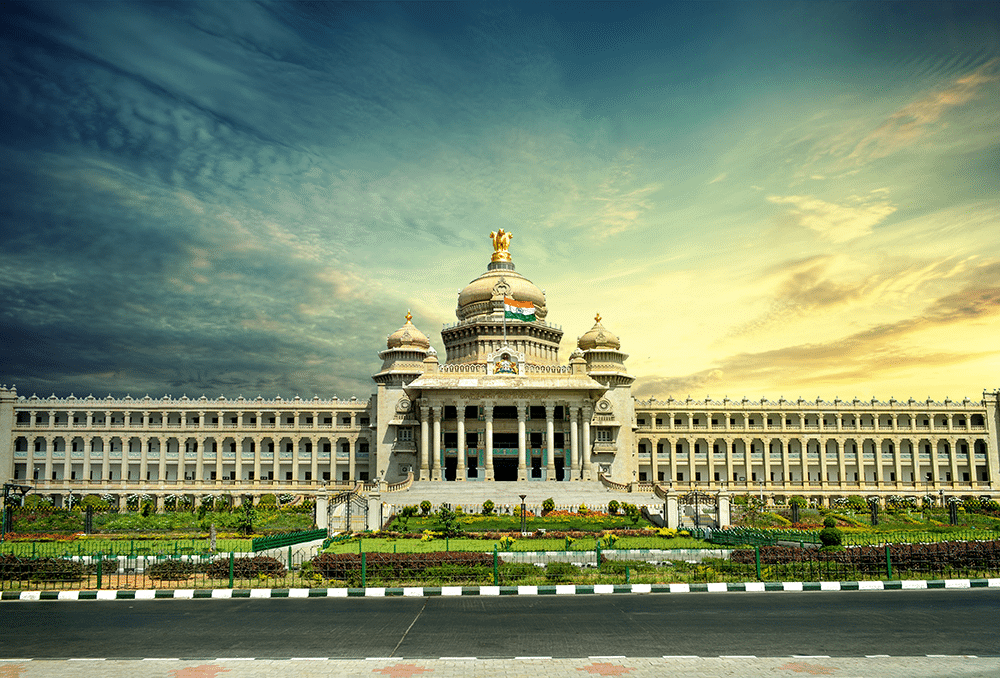For India’s steel industry, what was feared is coming true. Initial government data shows that imports of finished steel from China hit a new record in the first eight months of the fiscal year ending March 2025. The news quickly sparked concerns among domestic steelmakers about the influx of cheaper Chinese shipments.
India is the second-largest crude steel producer in the world. However, the subcontinent turned into a net importer during this period, with finished steel imports reaching an eight-year high. Altogether, imports rose to 6.5 million metric tons (MT), a more than 26% increase compared to the previous year.
According to the latest data, China supplied 1.96 MMT of steel to India between April and November this year, a 22.8% increase from the previous period. On the list of key exports from China were stainless steel, hot-rolled coils, plates, electrical sheets, pipes, bars, rods and galvanized sheets. Finished steel from Japan also surged, more than doubling to 1.4 MMT, a six-year high.
During these months, almost 80% of India’s total finished steel imports came from China, Japan and South Korea. The most commonly imported item was hot-rolled coil, followed by bars and rods in the non-flat product segment.
Understand the macroeconomic factors effecting the steel industry and metal prices with MetalMiner’s Weekly Newsletter.
India Launches Investigation Into Chinese Imports
In response to the import surge, New Delhi has launched an investigation to determine if India should impose a safeguard duty, a temporary tax, on steel imports. India’s Business Standard newspaper reported that the Indian Steel Association (ISA) had previously raised concerns over the significant rise in imports of specific steel flat products.
Shortly after this, the Commerce Ministry body, the Directorate General of Trade Remedies (DGTR), launched an investigation.

The probe focuses on imports of “Non-Alloy and Alloy Steel Flat Products,” which are widely used across industries like fabrication, pipe making, construction, capital goods, automotive, tractors, bicycles and electrical panels.
As per the DGTR notification, the ISA, representing key members such as ArcelorMittal Nippon Steel India, AMNS Khopoli, JSW Steel, JSW Steel Coated Products, Bhushan Power and Steel, Jindal Steel and Power and the Steel Authority of India, filed an application under the Customs Tariff Act of 1975 seeking the imposition of safeguard duties on these imports.
Don’t let sudden price volatility catch you off guard. Sign up for MetalMiner’s free weekly newsletter and gain access to timely insights on the latest steel industry trends and pricing.
India Makes its Case Against Asian Imports
The ISA alleged that there was a sudden, sharp surge in import volumes, which it claimed caused “serious injury” to the domestic steel industry. It argued that the Chinese imports threatened the competitiveness and viability of local producers.
To address the issue, the association requested safeguard duties to protect domestic manufacturers of similar or directly competing products from further harm and potential threats posed by rising imports.

World Trade Organization member countries can deploy measures like duties or quantitative restrictions as a way of curbing cheap imports. These measures aim to create a level playing field for domestic industries facing a sudden and significant import surge.
According to some industry experts, the rise in imports was related to the substantial excess production capacity in countries like China, Japan, and South Korea, which was driven by slowing domestic demand in those markets.
Join the MetalMiner LinkedIn group today to get weekly metal industry news and content.
Steel Industry Pushing for 25% Duty
As a counter to the challenge of cheap imports, India’s steel industry has advocated for a safeguard duty of up to 25%, including in the Free Trade Agreement (FTA) partner countries.
However, a final decision on the matter is still pending. Most analysts agree that once the DGTR completes its investigation, it may recommend imposing duties to the Board of Safeguard. If approved, these duties would apply to all of India’s trading partners.

Whatever the steel industry might want, the final decision on implementing such duties lies with the Ministry of Finance and will be based on recommendations from the Ministry of Commerce. Currently, about 60% of India’s steel imports come from FTA countries.
According to media reports, these nations currently benefit from zero-duty privileges. Meanwhile, government sources indicate they may continue enjoying exemption from duty hikes.
MetalMiner’s monthly free MMI report gives monthly price trends for 10 different metal areas, including copper, steel, aluminum and nickel. Sign up here.




